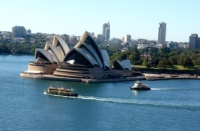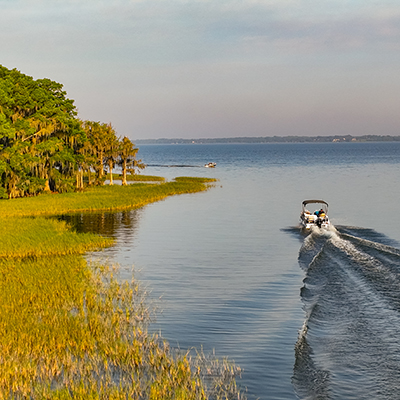Australia Retirement Guide
Australia is a huge continent and country (6th largest in the world by area) in Oceana in the southern Hemisphere. It also includes several islands including Tasmania. Australia is so far away from the U.S. that the local Sydney time is 16 hours ahead of New York City’s. The country is officially the Commonwealth of Australia; it is a constitutional monarchy with a Parliament. The language is English. The first European settlers came in the 19th century when Britain exported prisoners to settle the country. The aborigines who inhabited the land for millennia were brutally suppressed over the years, although now they and their culture are more appreciated. The population is almost 24 million. The largest city is Sydney, just slightly bigger than Melbourne. The capital is Canberra. One of the main tourist attraction is the Great Barrier Reef which runs just off the north eastern coast. The largest barrier reef in the world, it is a dream spot for snorkelers, divers, and fishermen. Uluru, formerly Ayers Rock, is another monumental attraction in the center of the country near Alice Springs. Updated Aug, 2023.

The population of Australia has become very diverse in the last half century. Whereas in the past immigration was mostly by the British or Irish, more recently there has been an influx of Asians and people from all over the world. Many of these were people welcomed here after natural disasters or political oppression. Immigration is no longer encouraged, and has been replaced by a strict point system for entry into the country. By far most people live in cities along the coast, mostly in the southeast.

The interior is mostly desert although there are some mountain ranges in the south and tropical rainforests in the northeast. There is a very long and beautiful coastllne. At 2,228 metres (7,310 ft), Mount Kosciuszko on the Great Dividing Range is the highest mountain on the Australian mainland at 2,228 meters. Australians are a friendly and healthy people who love the outdoors; it has the 4th highest life expectancy in the world. It is a wealthy country with the 5th highest GDP per capita.
Although some expatriate retirees might be attracted here for the attractive lifestyle, sub-tropical climate, widespread English spoken, and long coastline, it is nearly impossible for them to move here except for short visits. The country is mostly a very safe place to live. Roads are good, although the distances between cities are so vast that flying is the preferred option. On the negative side Australia is an expensive place to live, and it is very far from almost anywhere else.
Residency. It is difficult to become a permanent resident in Australia unless you are married to an Australian or a skilled worker. If you are the partner of someone who holds a Retirement visa (Subclass 410) you can apply for one of those, which would let you retire for a number of years in the country. You can qualify for an Investor Retirement Visa if you and your partner have assets of $750,000, make an investment in Australia of at least another $750,000, have a minimum net income of at least $65,000, and have your own medical insurance. Holders of permanent residency visas may remain in Australia indefinitely. A 5-year initial visa is available to a small number of qualified people. There are certain exemptions for skilled workers and under the Humanitarian program.
Retirement System. Australia has one of the world’s most interesting and successful retirement systems, called “Superannuation”. Here is a description from Wikipedia: “Superannuation in Australia refers to the arrangements which people make in Australia to have funds available for them in retirement. Superannuation in Australia is government-supported and encouraged, and minimum provisions are compulsory for employees. For example, employers are required to pay a proportion of an employee’s salaries and wages (9.5% as of 1 July 2014) into a superannuation fund, but people are encouraged to put aside additional funds into superannuation. From 1 January 2014, employers are required to pay default contributions to an authorised MySuper product. The minimum obligation required by employers is set to increase from 9% to 12% gradually stepping annually from 2013.” The result of the forced savings in this system is that Australia’s retirees, at least those with full time employment histories, will retire with enough funds for a comfortable retirement. Current retirees can start tapping their Superannuation funds at age 60; the money received is taxed as it goes in but tax free as it is distributed. There is also a complicated pension system.
Retirement Living. The most common form of retirement living in Australia takes place in what are called Retirement Villages, a relatively new concept. There are many of these available in all regions. Many seem to be rental communities which mix in assisted living with independent living. Although they tend to have many amenities they do seem to skew older and with less variety than the array of communities in the U.S. See this Directory.
Medical. US Medicare is not honored in Australia. The country uses a publicly funded form of universal health care called Medicare, which covers everyone. Certain countries have reciprocal agreements covering visitors in Australia – those include Great Britain, Sweden, and New Zealand among others. The government also funds up to 30% of private health care insurance.
Cost of Living. The numbeo.com price comparison (CPI plus rent) shows Australia has about the same Cost of Living Index as the U.S. In 2023 the median price of a home in Australia was $473,000 U.S. The median in Sydney as about $650,000.
Best Places to Live. See the list of the cities in Australia we have reviewed in the top right hand column. Cities near the coast and are most popular.
Pluses and Minuses. Australia is a fabulous country with beautiful scenery and friendly people. It is just about impossible to immigrate here.
Weather. The climate is mild year round, although summers can be quite hot, especially in the interior.
Crime and Security. Compared to the rest of the world Australia has a very low crime per capita rate. There are strict driving regulations. Forest fires have become an increasing hazard in much of the country.

